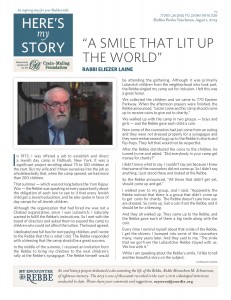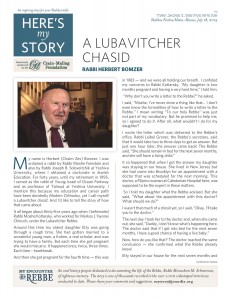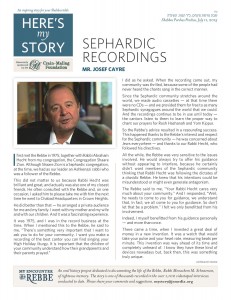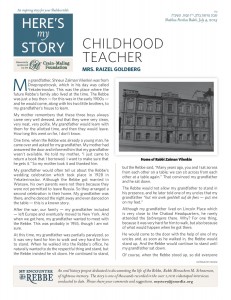“A Smile That Lit Up The World”
In 1973, I was offered a job to establish and direct a Jewish day camp in Flatbush, New York. It was a significant project enrolling about 75 to 100 children at the start. But my wife and I threw ourselves into the job so wholeheartedly that, when the camp opened, we had more than 200 children.
That summer – which was not long before the Yom Kippur War – the Rebbe was speaking at every opportunity about the obligation of each Jew to see to it that every Jewish child get a Jewish education, and he also spoke in favor of day camps for all Jewish children.
Although the organization that had hired me was not a Chabad organization, since I was Lubavitch, I naturally wanted to fulfill the Rebbe’s instructions. So I met with the board of directors and asked them to expand the camp to children who could not afford the tuition. The board agreed.
I dedicated one full bus for non-paying children, and I wrote to the Rebbe that this is what I did. The Rebbe responded with a blessing that the camp should be a great success.
In the middle of the summer, I received an invitation from the Rebbe to bring my children to the next children’s rally at the Rebbe’s synagogue. The Rebbe himself would be attending the gathering. Although it was primarily Lubavitch children from the neighborhood who took part, the Rebbe singled my camp out for inclusion. I felt this was a great honor.
We collected the children and we came to 770 Eastern Parkway. When the afternoon prayers were finished, the Rebbe announced, “Leizer Laine and his camp should come up to receive coins to give out to charity.”
We walked up with the camp in two groups – boys and girls – and the Rebbe gave each child a coin.
Now some of the counsellors had just come from an outing and they were not dressed properly for a synagogue and they were embarrassed to go up to the Rebbe in shorts and flip-flops. They felt that would not be respectful.
After the Rebbe distributed the coins to the children, he turned to me and asked, “Did everybody in your camp get money for charity?”
I didn’t know what to say. I couldn’t say yes because I knew that some of the counsellors did not come up. So I didn’t say anything. I just stood there and looked at the Rebbe. (more…)









